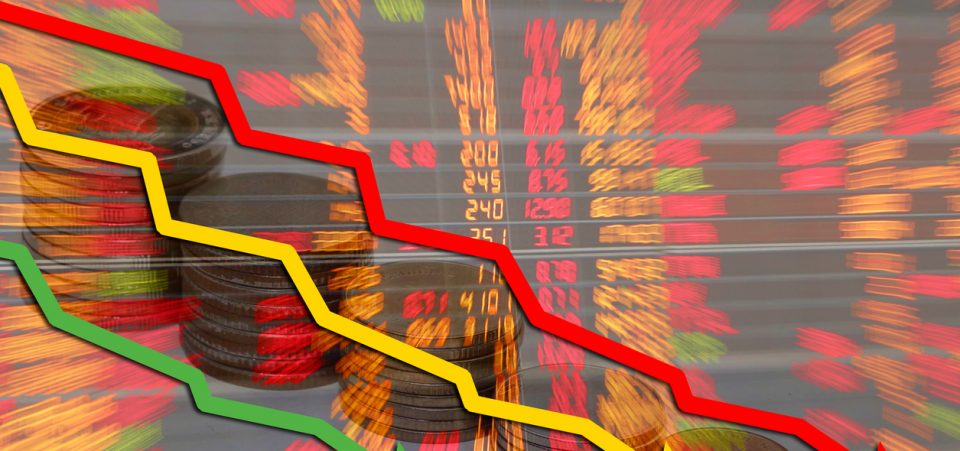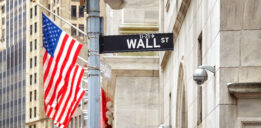Next Stock Market Crash Has Already Begun, and Syria Was the Trigger
If you’re an investor, you should be wondering—out loud—whether the next major stock market crash has started. Several risks are accumulating from different angles, which are not only fueling financial uncertainty, but raising concerns about issues far bigger than whether Wall Street has taken a bearish turn or what the extent of the current market correction is.
The combination of these risks is leading the world toward a major war, the outcome of which nobody can predict.
In this situation, it’s best to focus on what can be reasonably predicted. Nobody can claim to own mastery over the future, let alone the truth in life or the markets. Yet, it’s possible to detect trends and gain insights about what individual investors might want to consider. The sooner they become worried, the sooner they can take corrective actions to adjust their portfolios to market conditions.
Syria has been the game changer. Investors in the U.S. and elsewhere perceive what happens in Syria as having greater consequence now. President Donald Trump’s recent involvement, the frenzy over alleged chemical weapons, and the rhetoric becoming more hostile with every step closer to the Bashar al-Assad government consolidating its power have finally caused jitters on Wall Street.
There has been a step up in quality (or danger). The coincidence of this perception becoming clearer just as investors have become more critical explains the vulnerability that could produce a stock market crash at any moment.
Investors Want to Reap the Rewards Before It’s Too Late
The trends are suggesting with ever more determination that it’s time to reap some of the stock market rewards and pull out. Gold is preferable to stocks now because the risks to stocks are the product of growing geopolitical tensions, which are edging closer to a point of no return.
Given that market valuations experienced an excessively optimistic 2017, based purely on a hypocritical form of greed, it’s best to worry about your portfolio now. That way, you can focus on the bigger existential problems of life when everyone else is panicking later.
There’s no need to look far to determine where the risks of an epochal stock market crash are coming from. President Trump may not be the most articulate to ever occupy the Oval Office, but he might be the most revealing. Trump’s most recent batch of tweets, starting from about April 11, should have sent investors on high alert.
Russia vows to shoot down any and all missiles fired at Syria. Get ready Russia, because they will be coming, nice and new and “smart!” You shouldn’t be partners with a Gas Killing Animal who kills his people and enjoys it!
— Donald J. Trump (@realDonaldTrump) April 11, 2018
As Trump tweeted this, he violated one of his key 2016 electoral campaign promises (the one about not getting involved in any more Middle Eastern wars). Perhaps against the advice of the last standing adult in the proverbial room, Secretary of Defense James Mattis, Trump ordered an attack against presumed buildings related to Syria’s (long defunct) chemical weapons programs. Britain and France participated in the attack.
Mission Accomplished?
Trump declared “Mission Accomplished!” while the leaders of France and Britain referred to their parliaments about the attack. Was it a good idea? Under any number of considerations, the attack accomplished nothing from a strategic, or even tactical, point of view. It did, however, raise the risk to investors, virtually setting off a number of time bombs on stocks and the market.
In a single week, Trump used Twitter to fire away tariffs against billions of dollars worth of Chinese goods and announce a rocket attack against Syria. The consequences of both are unclear. Trump has launched the first salvos. The Russians and Chinese have not responded yet. But the question over what kind of response they will use should keep everyone on edge.
China could retaliate, not only by imposing tariffs of its own (and companies like Boeing Co (NYSE:BA) would pay a high price) but it could also sell off U.S. Treasuries. Russia, on the other hand, could use any number of ways to make life tough for the U.S. troops operating in eastern Syria.
Trapping the Bear Is Not Wise
The Russian markets have already weakened under the growing threat of a military conflict. The ruble has lost some five percent of its value and the Moscow stock exchange has fallen. The U.S. will enforce more sanctions, putting Russia into an ever-tighter corner. How long and how far does the Washington establishment want to push Moscow before it reacts?
The geopolitical situation has become extremely complicated. The U.K. and France have joined the United States in adopting a military option that has targeted Syria as much as Russia. Whether they have achieved any worthwhile objectives, the Kremlin will have received a hostile message from the West.
The Syrian crisis is but one problem; there is also the as-yet-unclear Skripal case, which was the incident that unleashed the sequence of steps leading to Cuban-crisis level tensions between Russia and the West.
Russia is being made to feel like a trapped bear. It’s a situation that Russia has experienced more often than others. The consequences, however, might be worse for the West than for Russia, should history be a guide. Certainly, while Emmanuel Macron of France has decided to play Napoleon, thinking he can divert attention from a series of severe economic problems in France with a military adventure in Syria, other European Union (EU) countries will not be happy.
Many in the EU rely not only on Russian heating gas during the winter, but they have welcomed Russian markets. Russia has experienced an industrial revival since 2014. Despite sanctions—related to Crimea and Ukraine—the Russian economy experienced a stabilization of the ruble and more consumption.
In other words, Russian demand for products from the EU helped the recovery in the eurozone, especially its southern members. This is a major factor explaining the success of populist political parties in Italy—and other EU member states—promising better relations with Russia. The Russian market was one of growth, particularly for agricultural and food products.
The Markets
The market correction in the last week of January did not produce a recovery. The Dow Jones remains off its record highs, as some of its biggest players are facing bigger risks.
The Facebook, Inc. (NASDAQ:FB) scandal involving the breach of information by Cambridge Analytica has exposed the tech sector. While Trump’s personal vendetta against Amazon.com, Inc. (NASDAQ:AMZN) founder and CEO Jeff Bezos has prompted worries, the White House may impose some regulations against Silicon Valley.
There is no need to predict the market trend. It’s already clear the direction that stocks will take. The overall atmosphere is bearish. The market could slide into a collapse any day now. Moreover, the next stock market crash will be worse than any of the previous ones in recent memory.
Of course, financial markets are unpredictable. The longer the period submitted for analysis, the harder it is to understand whether they will go up or down. Many factors involved are unknown. Yet, we can gauge market sentiment better. Market sentiment represents the collective psychology of investors. It depends on a few positive factors (usually), which make investors confident.
Why Now?
Now, confidence is not enough. There are other forces that make the next financial crisis more dramatic. Apart from the tense international situation, which is responsible for the declining sentiment, the electronic trading algorithms and the low interest rate-fueled investments (made using borrowed money) will make the next crash a loud one indeed.
The next stock market crash could produce a far more severe financial crisis than the one that started in 2008. One sign of the severity is that the price-to-earnings ratios of most stocks are higher than they were before the dotcom and subprime bubbles.
The trigger in such a situation could be a Chinese reaction to the tariff war. If China starts selling Treasuries, bond prices will fall and yields will rise. The phenomenon of falling bond and stock prices is already underway.
All it takes is an incident.
A well-calculated military strike failing or the Federal Reserve applying one too many rate hikes could act as the proverbial straw on the Wall Street camel’s back.
In 2017, there were terrorist attacks, missile strikes, U.S. and North Korea nuclear grandstanding, and the “Russiagate” investigation. The markets were flying and reached a pinnacle that few would have imagined in January 2018. It was the peak moment of a golden market year that began with Trump’s inauguration.
In February 2018, everything changed. Sentiment changed. Geopolitical events are finally having an effect after months—or years—of being ignored. Trump’s tweets have reminded Americans that the U.S. still has a huge nuclear arsenal deployed worldwide—and that it faces threats. Geopolitical events are moving markets now.






